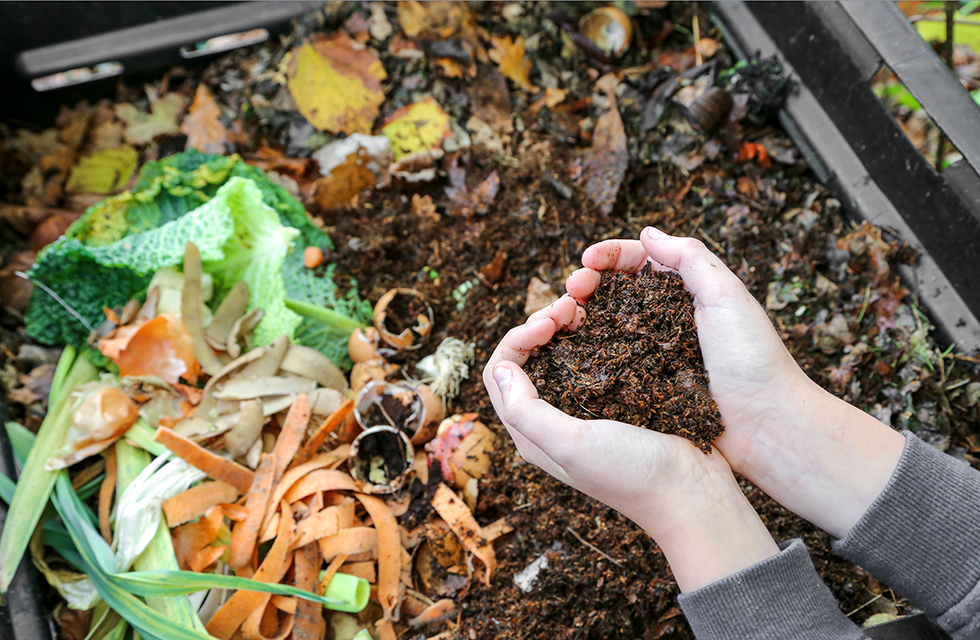Fall Composting – A Champion Combating Climate Change

As the world grapples with the urgent need to combat climate change we have a powerful tool to fight climate change in our yards and at our fingertips — compost.
Leaf composting is a cost-effective, productive and eco-friendly practice. By enriching the soil, enhancing plant growth and benefiting lawns, composting transforms organic waste into a valuable resource. Additionally, it reduces the need to dispose of organic materials in landfills, conserving precious landfill space in Prince William County. With a variety of backyard composting methods available, ranging from simple gardening tools to specialized bins and tumblers, there's an approach to suit every gardener's needs.
Virginia Cooperative Extension provides extensive information on the benefits of using compost and how to start composting at home in its Backyard Composting publication.
Compost is produced when organic matter is broken down by bacteria and fungi. It is nature’s natural recycling process. Raked leaves, mowed grass, and trimmed branches are materials you can use to make compost at home. Fruits and vegetables may also be included on this championship composting team. The resulting compost can be used in vegetable gardens and flower beds, raked into an existing lawn, or used with potting soil.
Through organic recycling and the return of compost back to our soils, greenhouse gas emissions are reduced. Methane, a greenhouse gas more than twenty-five times as impactful as carbon dioxide, can be significantly reduced through recycling organics. The organic matter in compost helps our soils absorb carbon dioxide from the atmosphere and sequester it in the soil, where it can remain stored for years, decades, or even centuries. At the same time, compost helps create healthier soils that are more resilient to changing weather conditions. Compost improves soil structure, water-holding capacity, and water retention that reduces erosion, while also protecting from drought. Increased water and organic matter increase biodiversity facilitating a slow-release source of nutrients to plants. With healthier soil, compost also helps reduce the need for artificial inputs such as chemical fertilizers and pesticides and reduces the pollution created by manufacturing and runoff. Compost also helps to increase resilience to the effects of climate change such as drought and extreme weather.
Composting and compost have the potential to be nature-based solutions to combat climate change, remarked Diane Hazard, Compost Research and Education Foundation (CREF) executive director in a press release.
Not in By Backyard!
If composting at home is not for you, you can still be a champion without getting your hands dirty. Simply place yard waste in paper yard waste bags or in a container labeled “Yard Waste” for curbside collection by your trash and recycling collection company. The special collection of yard waste is mandatory from March through December in Prince William County. The collected yard waste is commercially composted at the county’s compost facility, operated by the Convertus Group. The commercially produced compost can be purchased at the Prince William County Landfill or Compost Facility to use in gardens and landscapes.
We have a helpful tip for you! Did you know that Prince William county residents can conveniently drop off your food scraps at the 13000 Hansen Farm Road residential convenience center? It’s a great way to ensure your compostables are properly managed and contribute to a more sustainable community.
Get in the fight to combat climate change and save landfill space, compost your yard waste, or separate it for special collection at the curb. Visit www.pwcva.gov/trashandrecycling for additional disposal information and programs.